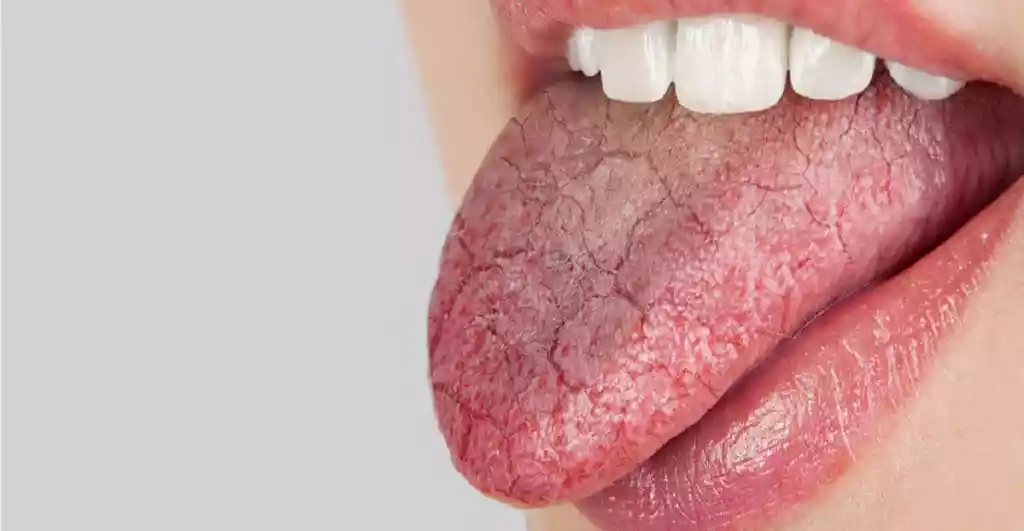
IMAGINE waking up every morning with a mouth so dry that it feels lined with sandpaper.
You take a bite of your favourite food, alas you taste nothing.
When you speak, your tongue sticks to your teeth, you sip water constantly, yet the relentless dryness persists, leaving your lips cracked and your breath foul.
This is the unseen suffering caused by xerostomia a condition far more complex and devastating than mere “dry mouth”.
While often dismissed as a minor annoyance, emerging research reveals that xerostomia paves way for systemic health breakdowns, from crippling dental erosion to life-altering malnutrition and social isolation.
Moreover, it affects one in five adults, not just the elderly and its causes are more sinister than most people realise.
Causes
- The medication trap
Over 500+ drugs list dry mouth as a side effect, including: antidepressants like Prozac — Alter nerve signals to salivary glands; Blood pressure medications — Reduce fluid availability; Chemotherapy drugs — Directly damage saliva-producing cells.
- Oral health challenges in old adults
- Dealing with dry mouth syndrome (Xerostomia)
- Menopause, the silent oral health crisis no one warns you about
Keep Reading
Unfortunately, many patients are on multiple xerostomia-inducing drugs simultaneously, worsening the condition unknowingly.
In this case, they can have a discussion with their doctor to see if there are other alternatives.
- The autoimmune betrayal: Sjögren’s Syndrome
Sjögren’s syndrome is not just dry mouth, it is a full-body attack where the immune system destroys moisture-producing glands.
About 90% of sufferers are women and many go undiagnosed for years while their teeth crumble and their throats burn.
More than just lack of saliva
Saliva is not just water, it’s a biochemical masterpiece.
It contains antimicrobial peptides that protect against infections, digestive enzymes like amylase that start breaking down food, growth factors that heal oral tissues, buffering agents that neutralise acids and prevent tooth decay.
When saliva production fails, the consequences cascade far beyond discomfort.
True xerostomia vs Pseudo (false) xerostomia
True Xerostomia — Caused by actual salivary gland dysfunction (eg, Sjögren’s syndrome, radiation damage).
Pseudo-Xerostomia — Patients feel dry despite normal saliva flow, often due to nerve damage, anxiety or microbiome imbalances.
A 2023 study on oral diseases found that 40% of xerostomia cases involve altered brain signalling, meaning the problem isn’t always in the mouth, but in how the brain perceives moisture.
- Radiation aftermath
Head/neck radiation for cancer irreversibly destroys salivary glands in 80% of the patients.
Many survivors say xerostomia is worse than cancer itself due to lifelong suffering.
- The microbiome connection
New research shows that oral dysbiosis (imbalanced mouth bacteria) can trick the brain into feeling dryness, even with normal saliva.
Probiotics (promote growth of good bacteria) and phage therapy (eliminates bad bacteria) are now being tested as potential cures.
The domino effect: Xerostomia destroys more than just your mouth.
- Dental apocalypse: Without saliva’s protective enzymes, teeth decay increases at an alarming rate, leading to root canals, extractions and dentures even in young adults.
- The taste-bud blackout: Saliva carries flavour molecules to taste receptors. No saliva? Food will not taste good, then malnutrition and depression creep in.
- The social stigma: Chronic bad breath and difficulties in speaking force many into self-imposed isolation, destroying relationships and careers.
What you can do about it
- Short-term relief: Home remedies
Hydrate smartly: Sip water frequently (avoid gulping large amounts at once, which can dilute electrolytes); try ice chips or sugar-free popsicles for gradual moisture. Avoid caffeine, alcohol and carbonated drinks, they worsen dryness.
Stimulate saliva naturally: Chew sugar-free gum (xylitol-based), it triggers saliva production. Suck on sugar-free lozenges (look for the ones with malic acid or citric acid). Eat tart foods like lemon slices (if tolerable) to activate salivary glands.
Use moisturising products: Use saliva substitutes such as Biotène, Oralube or Xero-Lube; alcohol-free mouthwashes (Biotène Dry Mouth Oral Rinse) and lip balms with lanolin (prevents painful cracking).
- Long-term management: Protecting your oral health
Optimise oral hygiene: Brush with fluoride toothpaste twice daily, use a soft-bristle toothbrush (dry mouths are prone to gum irritation); floss daily (food debris worsens dryness and decay) and apply fluoride gel or varnish (ask your dentist for appropriate options).
Adjust your diet: Avoid crunchy, spicy or acidic foods (chips, citrus, hot sauce).
Reduce sugar intake (it feeds decay-causing bacteria). Choose moist, soft foods (soups, yoghurt, mashed potatoes).
Consume high-water fruits/veggies (cucumber, watermelon).
- Medical interventions: When to see a doctor
(a) Review your medications as well as get tested for underlying conditions such as: Sjögren’s syndrome (blood tests: ANA, anti-SSA/SSB); Diabetes or thyroid disorders (check blood sugar and TSH levels) and Nerve damage (neurological evaluation if dryness is sudden).
(b) Ask about prescription treatments — Pilocarpine (Salagen) or Cevimeline (Evoxac). Stimulate saliva by using artificial saliva sprays (if glands are damaged); steroid mouth rinses (for severe inflammation).
- Emerging and alternative therapies
(a) Acupuncture: Some studies show that it boosts saliva flow by stimulating nerves.
(b) Electrostimulation devices salitron: Uses mild electrical pulses to reactivate glands.
(c) Gene therapy and stem cells: Scientists at MIT are regenerating salivary glands using modified stem cells. Human trials begin in 2025.
(d) Neurostimulation implants: A pacemaker-like device for the salivary nerves is in development, showing 80 % improvement in early trials.
(e) Smart hydration patches: Wearable patches that release moisture-stimulating peptides through the cheek are being tested.
- When to seek emergency care
Difficulty in swallowing or breathing (could indicate severe swelling), white patches or bleeding (sign of oral thrush or infection), Sudden, unexplained dry mouth (may indicate stroke or nerve damage).
Xerostomia is not “just dryness it is a stealth destroyer of health and happiness”, it is a medical issue that can lead to serious complications if ignored.
Track your symptoms, advocate for yourself with doctors and explore all treatment options.
Your mouth shouldn’t feel like a desert — take action today!
- Patience Matambo is a final year BSc Dental Surgery student at the People’s Friendship University of Russia. She can be reached at patiencedental2024@gmail.com










